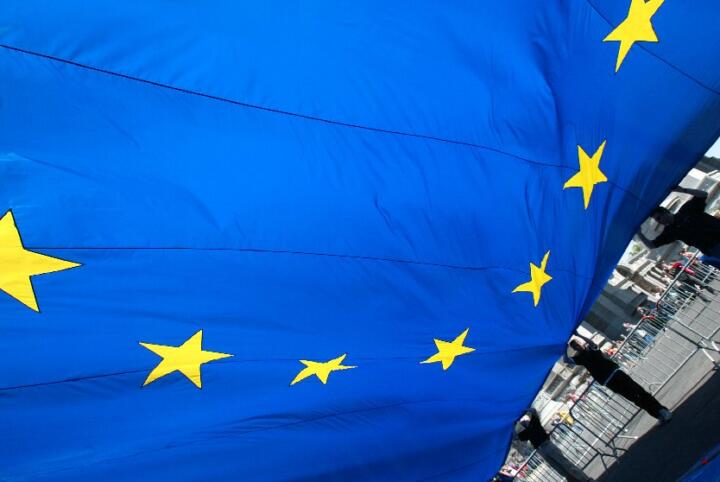Nigeria’s vital agricultural sector is poised for a significant injection of capital following the announcement of a major financing package from the European Union. In a crucial move aimed at boosting food security, enhancing export competitiveness, and supporting economic diversification, the European Investment Bank (EIB), the EU’s financing arm, has approved a credit line of ![]() million, equivalent to approximately
million, equivalent to approximately ![]() billion. This substantial financial backing, which will be channelled through Nigerian commercial banks and development finance institutions, is specifically designed to expand lending and bolster agribusinesses across the country, marking a new chapter in the partnership between the EU and Nigeria.
billion. This substantial financial backing, which will be channelled through Nigerian commercial banks and development finance institutions, is specifically designed to expand lending and bolster agribusinesses across the country, marking a new chapter in the partnership between the EU and Nigeria.
The landmark agreement was sealed during a high-level bilateral engagement between senior EIB executives and a delegation from Nigeria’s Federal Ministry of Budget and Economic Planning, held on the sidelines of the Global Gateway Forum in Brussels, Belgium. The facility represents a clear, tangible commitment by the EU to support Nigeria’s efforts to modernize its farm-to-fork value chains and transition to more sustainable economic models. The primary goal of the capital is to de-risk agricultural lending, an area commercial banks have historically approached with caution, thereby unlocking private sector investment in an industry that remains the largest employer of labour in the country.

A core focus of the investment package is the development and strengthening of specific, high-potential agricultural value chains. Officials from the EIB highlighted that the funds are strategically targeted at sectors such as cocoa and dairy production. This deliberate targeting is intended to not only increase local productivity but also to ensure that Nigeria’s agri-food products meet international standards for sustainability and competitiveness, particularly in the European market. The overarching ambition is to ensure that the investment supports climate-smart agricultural practices, promoting long-term resilience for farmers against environmental challenges.
The support extends beyond just credit. The million facility is an integrated package that includes both the credit line and a robust technical assistance component. This technical support is vital, as it aims to build the institutional capacity of local financial institutions—both commercial banks and development finance institutions—to effectively manage and expand their lending portfolios within the complex agricultural subsector. By building this capacity, the EU and Nigeria aim to create a sustainable financial ecosystem for agriculture that will continue to function long after the initial credit has been fully disbursed.
Thourayya Tricki, the EIB’s Director for International Partnerships, emphasized that the initiative is an integral part of the EU’s broader commitment to Nigeria’s economic development, noting that the investment will help foster sustainability and competitiveness. This financial injection aligns with the EU’s flagship investment strategy, the Global Gateway, which seeks to mobilize global resources for sustainable projects that promote the green transition and human capital development across partner regions, particularly in Africa.
The Nigerian government, represented by the Federal Ministry of Budget and Economic Planning, warmly received the deal, noting its alignment with the administration’s economic blueprint, the Renewed Hope Agenda. The delegation affirmed the government’s commitment to implementing necessary reforms to create an enabling environment for attracting and sustaining foreign direct investment.
Furthermore, the officials underscored that the funding would support community-level growth, with planned initiatives like the forthcoming National Development Plan (2026–2030) and the Ward-Based Development Programme designed to ensure that the benefits of this increased financing reach smallholder farmers and communities at the grassroots level, addressing immediate concerns of food inflation and rural poverty.
The commitment to agriculture is part of a larger, multi-sector investment package from the EU. On the health front, the EU also announced a separate commitment of million to strengthen Nigeria’s vaccine manufacturing and pharmaceutical industry, comprising an
million technical assistance grant and a
million credit facility. This combined strategic investment in two of the nation’s most critical sectors—food and health—underscores the depth of the EU’s strategic partnership with Nigeria, positioning the country for diversified, sustainable, and inclusive economic growth. This infusion of capital is a decisive step toward reducing dependency on oil revenue, modernizing production practices, and ultimately enhancing the quality of life for millions of Nigerians.
Support InfoStride News' Credible Journalism: Only credible journalism can guarantee a fair, accountable and transparent society, including democracy and government. It involves a lot of efforts and money. We need your support. Click here to Donate
